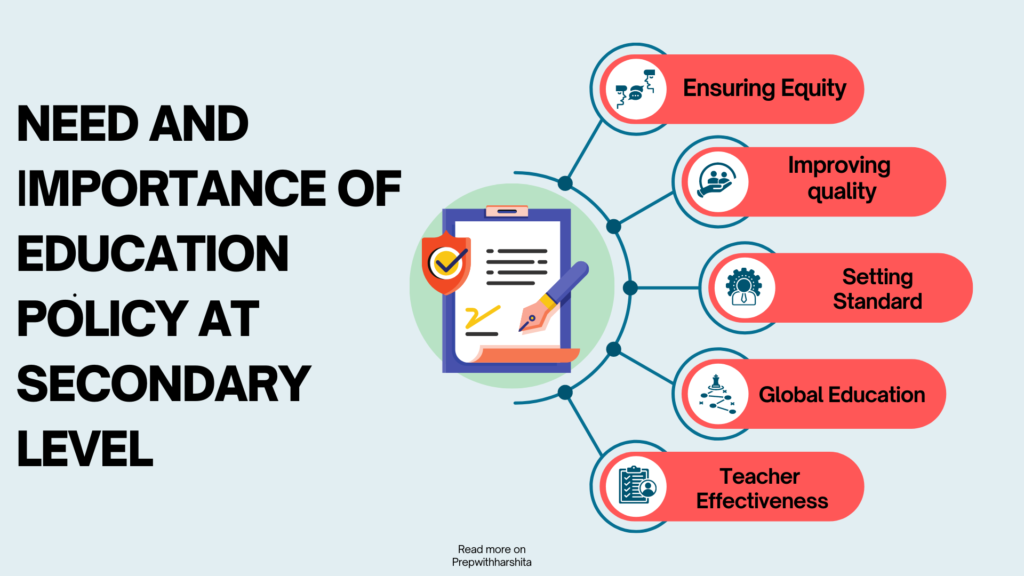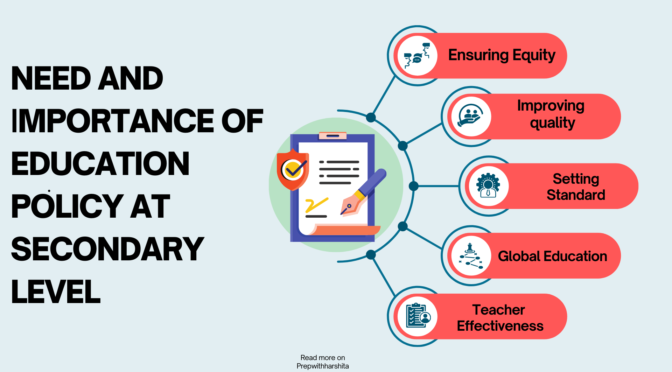Education policy at the secondary level refers to the set of guidelines, principles, and regulations that govern the organization and delivery of education for students in grades 9-12.
The policy framework at the secondary level is often influenced by national or state-level policies and goals, as well as local priorities and needs.
Need and Importance of Educational Policy at secondary Level
Educational policy at the secondary level plays a crucial role in shaping the direction and quality of education. Here are some reasons why:
- Setting standards: Educational policies at the secondary level help establish clear standards and expectations for what students should be learning in each subject area.
- Ensuring equity: Policies can ensure that all students have access to quality education regardless of their social, economic, or geographic background.
- Improving quality: Policies can promote best practices, innovative approaches, and new technologies that enhance the quality of education.
- Addressing challenges: Policies can identify and address challenges that are unique to secondary education such as dropout rates, student engagement, and post-secondary transitions.
- Preparing students for the future: Policies can help ensure that students are prepared for the demands of higher education, the workforce, and global citizenship.
- Enhancing teacher effectiveness: Policies can support teacher training, professional development, and incentives that enhance the effectiveness of secondary education.
Also Read: Types of Educational Policy
Some of the key areas addressed by education policy at the secondary level may include:
- Curriculum and assessment: The policy may outline the required subjects, learning outcomes, and assessment standards for secondary education.
- Teacher qualifications and professional development: The policy may define the minimum qualifications for secondary school teachers, and provide guidelines for ongoing professional development and evaluation.
- Student support services: The policy may outline the range of support services, such as counseling, special education, or career guidance, that are available to students.
- School management and governance: Policy may provide guidelines for the management and governance of secondary schools, including funding, accountability, and decision-making processes.
- Educational technology: Policy may address the use of technology in teaching and learning, including standards for digital literacy, online safety, and access to technology resources.
- Inclusive education: The policy may promote the principles of equity and inclusivity, and provide guidelines for meeting the needs of diverse learners, such as students from different cultural or linguistic backgrounds, students with disabilities, or students from low-income families.


